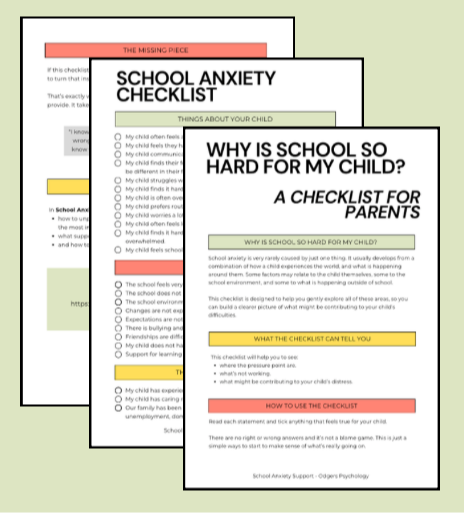How to use spoon theory to support children who are anxious about school
Sep 14, 2023
Have you ever heard of spoon theory? It’s an idea that was originally applied to people with chronic fatigue, but I think it’s also a fun and easily understandable metaphor that can be used to support young people with school anxiety, particularly those on the autistic spectrum.
Imagine you start the day with 10 spoons. Each spoon represents a finite amount of energy. Throughout the day, you’ll do all sorts of things that will either use up your spoons or add to your spoon collection. How much energy each activity takes out of you will depend on the individual. For example, going on noisy, busy public transport might use up 1 spoon. Getting through the school gates and into reception might take 2 spoons. Working with peers you don’t know may use 3 spoons. If you ever get down to zero spoons, then you feel completely overwhelmed.
But throughout the day there are also opportunities to gain spoons. For example, spending time with someone you trust may give you a spoon. A 10-minute sensory break listening to music or going for a walk might give you another spoon. Hanging out with your friends doing an enjoyable activity together might give you two spoons. Thirty minutes focused on a special interest might give you 3 spoons. If you have regular opportunities throughout the day to add to your spoon collection, this can help balance out all the spoons you have lost doing stressful activities. This may make you more able to cope and get though the day.
So how can this be used to think about school anxiety?
- Firstly, you can use this idea to help your young person open up about what they find difficult. Ask them to go through their normal day and tell you how many spoons each activity uses up. If your child is younger, you could get some actual spoons out the cutlery drawer to help them do this activity. You may be surprised about what they say. A friend who did this discovered his son found getting ready in the morning very stressful due to difficulties organising themselves and their equipment. This meant that even before the young person had started to think about going into school, their energy levels were already depleted and they felt stressed.
- Discovering which activities use up spoons can also present opportunities for problem solving. For example, in the situation above, you could ask your child to think what might reduce the number of spoons needed to get ready in the morning. Would a checklist help you know what to put in your bag? Would it help to pack your bag the night before? Should we plan packed lunches for the week on Sunday so you don't have to make a decision each morning? What else might make this easier for you?
- Then you can ask your young person what gives them spoons throughout the day. If they can’t come up with any ideas, you might want to suggest some of the ideas described above. You could talk to them about whether there might be opportunities to build these activities into their day. For example, what could they do when they come back from school that would give them a couple of spoons?
- Spoon theory can also be used with school to help them think about when to timetable support throughout the day. Ideally, you’d want the school to think about whether they can timetable short, regular opportunities for your child to gain spoons throughout the day, to make sure your child never gets to a point they have no spoons left. You might want to talk to your child's school about whether something could put in place for your child when they first arrive in school to replace the spoons it took for your child to get through the door. In one school I knew, children who were worried about attending went straight to Lego club when they arrived. Once there, they spent 10-15 minutes playing Lego with just a few other children, sometimes accompanied by a hot chocolate and biscuits. The club was run was a warm and nurturing teaching assitant with whom the children built up a lovely close relationship. It helped them feel safe and calm. It gave them a spoon which made it easier for them to join their class for the rest of the day.


